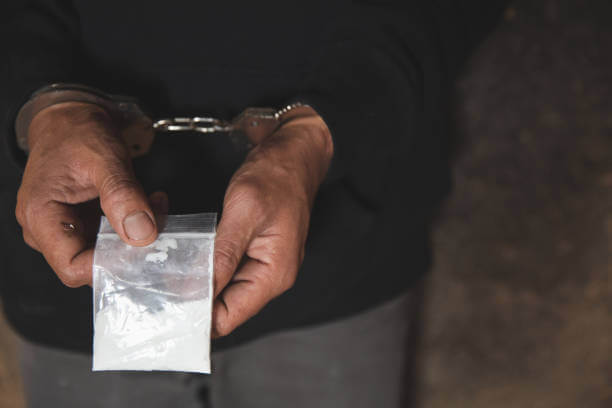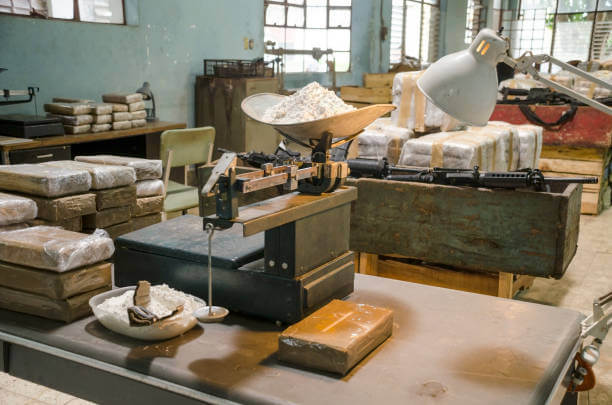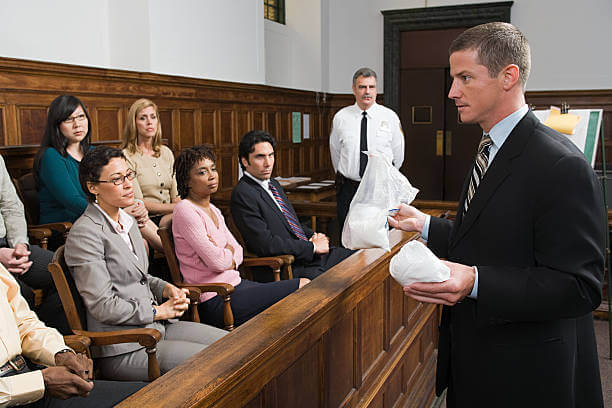Drug charges can upend your life and carry hefty consequences. Depending on whether you were using drugs, transporting drugs, or manufacturing drugs, the consequences can be different. If you commit other crimes while under the influence of an illegal substance, you may be charged differently and more severely.

While some states charge you differently whether you were in possession of or manufacturing drugs, others lump the two together. Drug charges can be complicated and serious, and you will most likely need serious legal help if you have been charged with a manufacturing offense.
We’ll discuss some of the basics of what you need to know regarding the seriousness of drug charges, from routine drug search and seizures to manufacturing drug charge sentences.
Regardless of what your situation is, remember that you have rights. Read on to learn more about what those rights are and how they affect the consequences of a drug charge.
What kinds of drug-related charges can you be prosecuted for?

You can be prosecuted for drug-related activities including possession, manufacturing, distribution, distribution to minors, criminal enterprising, conspiracy, import and export activities, racketeering, financing drug operations, and firearm charges relating to drugs.
Any drug charges have the potential to be considered a federal crime, especially if they can be connected to any ongoing FBI or CIA investigation. A federal drug crime can have extremely harsh consequences and can land you in prison for your entire life.
There are various controlled substances in the United States that are listed under Title 21 U.S.C. (Controlled Substances Act, CSA), Section 812. Schedules I and II include the drugs that carry the harshest punishments.
What are the punishments for federal drug crimes?

The specific consequences for drug-related crimes can vary depending on your level of cooperation, type of drug involved, drug quantity, and previous drug or criminal history.
Drug manufacturing charges usually cover the production of drugs, while distribution has to do with the movement or spread of the drug. Creating drugs for personal use is a felony, and even having the ingredients to make drugs such as meth can be considered as criminal as actually creating the drug in question.
Manufacturing charges are usually more severe than distribution or possession charges, though they vary from state to state. In Texas, the punishment scales with the amount manufactured, ranging from two years to life in prison, depending on the quantity. In Tennessee, a single gram of meth can land you in jail for eight to 30 years.
Some states also deny parole for those who both manufacture drugs and possess firearms. This may affect your choice of whether to plea bargain or oppose the charges.
In addition to jail time, you could be punished with a hefty fine and have your property seized, such as the car used to transport ingredients and the house where it was manufactured.
Drug charges can take away everything you have if you don’t have the money and means to fight back. This is one of the reasons why you need to understand the risks involved.
For drug charges that have been elevated to federal crimes, there are minimum sentences that the judge cannot go beneath. For marijuana, this is five years without parole for 100 kilograms and 10 years without parole for 1,000 kilograms, while for meth these minimums apply to 5 and 50 grams, respectively.
What do you do if your charge is brought to court?
There are many ways to get a better sentence for a drug charge, but the number one way to get the best sentence is to get a qualified attorney. Don’t try to represent yourself. There’s a reason why most defendants get a lawyer.
For one thing, different books and resources regarding law and crimes won’t all share the same information, and these books don’t share everything you need to know. It is extremely difficult to learn and understand all the information you would need to know to properly defend yourself.

In addition, the justice system is often stacked against defendants. A skilled criminal lawyer will know how to approach your case and give you informed opinions on what your best options are.
Their schooling and education will give you an edge up during your case. However, representing yourself can be a mistake due to ignorance of the law.
Unless you intend to plead guilty, representing yourself is not a good idea because you could accidentally say something that hurts your case. You may not know what facts constitute a legal defense, and you may not know how to talk to the judge.
Make sure not to sign any confessions or agree to a plea deal without getting a lawyer. Be cooperative with law enforcement, but do not give them information that can be used to implicate you.
You have rights as a person accused of drug-related charges, and you should not allow anyone to convince you to give up on those rights.
You need to know what your rights and options are if drug charges are brought against you.
If you are caught with a complete product and are charged with manufacturing, you may not have many options in regards to your defense, though you can mitigate your sentence. For example, your lawyer can argue that your drugs were intended for personal consumption rather than for trafficking in a state where personal drug uses are charged differently.
Not having a child and not exposing minors to potential drug abuse are also factors that can lower the intensity of your sentence. Your lawyer may also be able to bring up relevant factors that can convince the court to give you a lighter sentence.
If you don’t have a finished product, you can argue that the ingredients you possess are owned for legitimate purposes unrelated to drugs. A lawyer can help you argue that the substances you own were not intended for drug creation.
Talk to your lawyer about your options for fighting drug charges. Just because you were seized with an unlawful drug doesn’t mean you have no options.
Sometimes law enforcement may break legal rules while obtaining evidence, and your attorney can use unlawful basis for searches and badly documented evidence as a basis for getting your case dismissed.
You should always know that you have the right to a lawyer and an unbiased jury. Your lawyer will be able to discuss more specific rights that you have that apply to your situation and suggest whether pleading guilty for a lesser sentence or fighting the drug charges will be more beneficial.
Deborah Goldberg writes and researches about legal issues for the legal advice site, FreeAdvice.com. She is passionate about educating people on crimes and their associated penalties to help others remain above the law and avoid lifelong consequences.